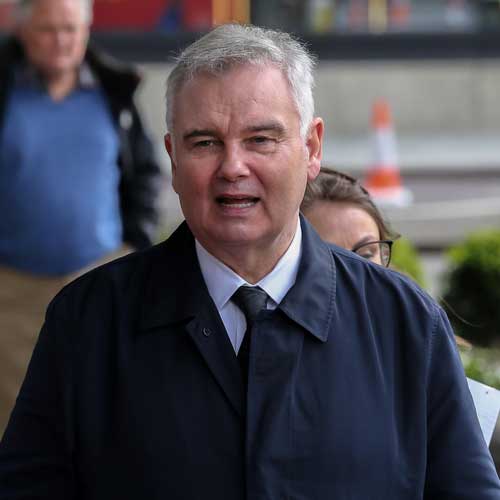David Harmer, Associate Director at Markel Tax, assesses the case of TV presenter Eamonn Holmes, who has lost his appeal in the Upper Tier Tribunal.
Eamonn Holmes has lost his appeal in the Upper Tier Tribunal (UTT), leaving him saddled with a reported tax bill of £250,000.
Operating through his own company, Red White and Green Limited, Holmes provided services to ITV and a number of other clients. In February 2020, the First Tier Tax Tribunal found that Mr Holmes’ engagement with ITV was one of ‘employment’, and the IR35 legislation applied.
The First Tier Tribunal decision
Having appealed the HMRC determinations that IR35 applied, the First Tier Tribunal (FTT) considered the appeal.
In order for IR35 to apply, the three key ingredients of Personal Service, Mutuality of Obligations and Control must be present. The FTT found, in 2020, that Mr Holmes was required to provide personal service (ITV would not want a substitute); ITV held sufficient control over the manner in which his personal service was provided; and there existed sufficient mutual obligations between ITV and Mr Holmes.
The FTT also examined the ‘in business factors’ (those factors which demonstrate a PSC is operating in business on its own account independently), which have proved to be a fundamental turning point in other similar cases, and were unconvinced that any such factors existed which would dissuade their opinion that IR35 applied.
The Upper Tier Tribunal decision
Red White and Green Limited appealed this decision to the Upper Tier Tribunal (UTT). Two grounds of appeal were presented to the UTT on behalf of Red White and Green Limited, broadly:
- Control: The FTT failed to draw distinction between editorial control in respect of how the work was done, and other more important forms of control, specifically what work was done.
- Other factors: The FTT placed too much emphasis overall on mutuality of obligations and control and disregarded other factors, failing to consider the “whole picture”.
Control
The main argument put forward was that the most important factor for control is control over what is to be done. Without control over this, there cannot be a sufficient framework of control.
While what is a relevant factor of control (alongside where and when), we have always considered the most important aspect of control is the how, i.e. the method of performance. The what, when and where can often simply be the consequence of a job specification – a person needs to know what is to be done, where and by when).
The argument put forward was that ITV did not retain a right of deployment over Mr Holmes, i.e. they could not require him to present other programmes as they chose.
A second – and perhaps stronger – argument was put forward encompassing all aspects of control. It was argued that as the FTT had stated, Mr Holmes had “considerable autonomy”, and they had also found that ITV stated “it would be great if Mr Holmes did as he was told”, therefore suggesting that ITV could not have sufficient control over Mr Holmes. The FTT, it was argued, had focused too much on editorial control and overlooked other factors where ITV could not exercise control.
In considering these arguments, the UTT held that as a finding of fact, ITV could require Mr Holmes to undertake promotional work and could also require him to present This Morning on specific dates and times.
They further concluded that the FTT were entitled to find a sufficient framework of control based on evaluating the evidence before them.
Other factors
There were a number of 'in business' factor challenges made against the FTT’s decision, including:
- Mr Holmes having had multiple engagements with other clients
- an express intention in the written contract that the engagement was not one of employment
- non-entitlement to sick pay, holiday pay or pension
- billing arrangements demonstrated a fixed-fee per programme
It was argued that, considered correctly alongside the other factors, that these demonstrated Mr Holmes' engagement was one of self-employment.
This line of argument has carried weight in other presenter cases (such as the Lorraine Kelly and Kaye Adams cases). However, the UTT did not consider this argument persuasive in this case, and agreed with the FTT’s conclusion.
In its summation, the UTT also added a point of clarification:
“…to those unfamiliar with the legal principles applicable in the context of the intermediaries legislation, it may seem that Mr Holmes’ work for several organisations points to him being in business on his own account i.e. self-employed in all of his work. However, the case law clearly establishes that an individual may be considered to be engaged under several contracts of employment, each contract accounting for a different period of his or her working week, and be self-employed for other engagements”
What can we learn from this case?
A UTT Tribunal decision is binding on the FTT (meaning it must be followed), and while it may be seen by many to be of limited use in cases which do not involve a presenter, it does re-affirm three fundamental points of application to all cases:
- Written contracts which confer specific rights on parties cannot simply be set aside. They will be held valid unless it can be shown they did not apply (or are a sham). A written contract forms the founding basis of any engagement.
- It is entirely possible for contractors working for multiple end clients to be outside of IR35 for some engagements and inside of IR35 for other engagements. Each engagement must be assessed on an individual basis.
- The fundamentals of IR35 (Personal Service, Control and Mutuality of Obligations) are the foundations of any decision on IR35.
While the UTT’s decision is undoubtedly a blow to Eamon Holmes, the Tribunal’s reasoning is clear and provides much-welcomed clarity at a time when IR35 decision-making has become muddied by unique cases and over-cautious engagers.
